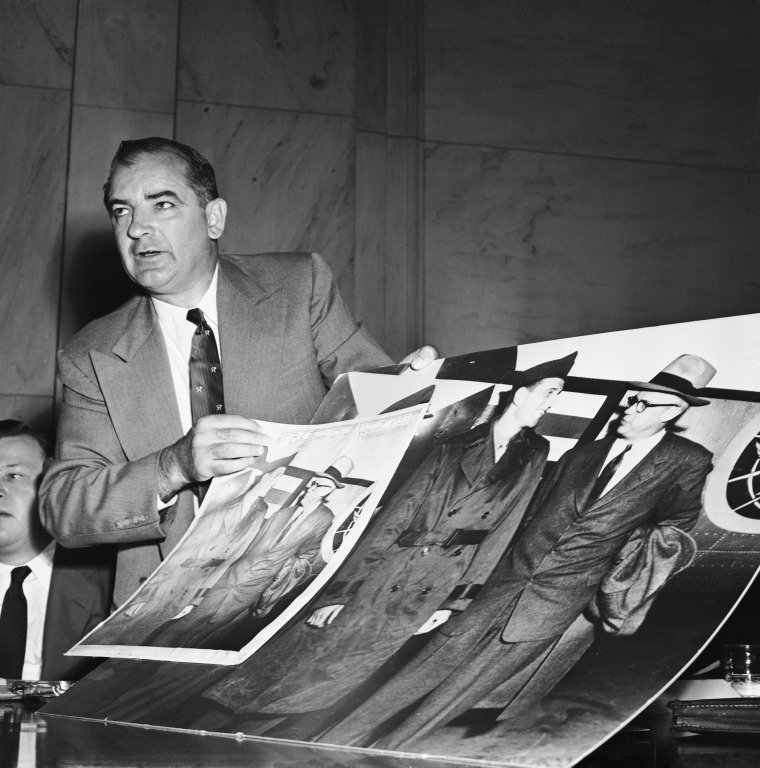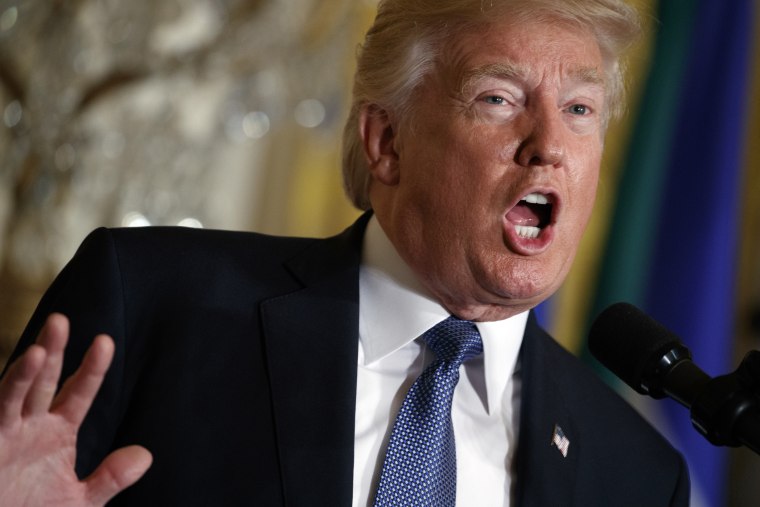President Donald Trump has provoked considerable talk about his emotional stability and suitability for the highest political office. Convinced that his personal problems represent a threat to the nation, some clinicians once inhibited by the 1973 Goldwater Rule now describe his erratic behavior as “malignant narcissism” and cautioned that his actions could produce public disasters.
Whatever the accuracy of these descriptions, it might be more productive to view Trump’s rise to the presidency as a chapter in the history of American demagogues. Louisiana Governor Huey Long in the 1930s, Senator Joseph McCarthy in the 1950s, and Alabama Governor George Wallace in the 1960s all can be seen as predecessors of Trump’s ascent to political power.
While do not know how much Trump has or has not studied these men, it's certainly possible he learned about their techniques from his longtime mentor Roy Cohn, McCarthy’s close associate.
Like Trump, every one of these demagogues used deceit and exaggeration to attract large followings and advance questionable policies. All these men were combative liars who won attention by verbally assaulting anyone they saw as opponents.
Trump, of course, is the only one of these men to win the White House. But each in their own time exerted outsized influence and shaped, to one degree or other, national affairs, such as the foolish loyalty oaths of the Cold War era.
All these men were combative liars who won attention by verbally assaulting anyone they saw as opponents.
Until Trump, Long was arguably the most successful of these ambitious, self-serving strivers. He was a popular governor of Louisiana who then went on to represent the state in the U.S. Senate, where his outlandish dress and caustic language made him many enemies.
Nevertheless, he won popular support with his “Share the Wealth” program. Long predicted it would ensure every breadwinner earned at least $2,000 a year, a sizable income during the Great Depression. He promised that under his rule every man would be a king — though none would wear a crown.
In 1935, Long reportedly insisted that President Franklin D. Roosevelt was afraid of his political ambitions. But before Long could run against Roosevelt in the 1936 presidential election, an assassin’s bullet ended his life.
McCarthy was as grandiose as Long but more destructive to individuals and U.S. institutions. He lied repeatedly about having a long list of Communists in the State Department, which he never made public. Nor did he ever prove how Foreign Service officers caused our loss of China to the Communists, or that President Harry S. Truman and Secretary of State George Marshall were betraying the country. Eventually, his baseless assault on the U.S. Army, insisting it was nurturing subversives, destroyed his credibility and persuaded his colleagues to censor him for reckless accusations.

Like Long and McCarthy, Wallace became a hero to millions of Americans with inflammatory rhetoric that divided the country. He was particularly popular across the South, where he stood in front of a schoolhouse door, barring federal troops, promising “segregation today, segregation tomorrow, segregation forever.”
In 1968, Wallace had enough supporters to make him a credible presidential candidate. But an assassination attempt left him disabled and largely ended his political career.
Trump stands in the shadow of these popular agitators. His many promises, built so far on sand, include his pledge to build a “beautiful wall” paid for by Mexico; his commitment to repeal and replace the Affordable Care Act; his complaint that 3 million to 5 million illegal voters deprived him of a popular majority; his threats to dismantle the North Atlantic Treaty Organization and to abandon the nuclear agreement with Iran. Together with rhetoric criticizing everyone from Hillary Clinton to his own party leadership to Senator John McCain, these statements do more to confirm Trump's reputation as a bully than create change.
Again, in the pattern of other demagogues, he has taken presidential belligerence to a new level. He is as combative as Pitchfork Ben Tillman of South Carolina, who in the 1890s promised to stick his pitchfork into President Grover Cleveland’s fat ribs; or Mississippi’s Governor Theodore Bilbo, whose verbal abuse of African Americans and approval of lynchings provoked a (failed) attempt to bar him from taking his U.S. Senate seat in 1946; or Michigan’s Father Charles Coughlin, who berated Jews as money grubbers undermining the national economy.
The thin-skinned Trump has even encouraged physical violence against hecklers. At one campaign rally in 2016, he told voters he wished he could punch a protester in the face. In the process, he has deepened the divide in this country and demeaned the presidency.
At the end of the day, all these demagogues, including Trump, share common traits. They have all been self-promoters hiding behind falsehoods; they have all been advocates of unrealizable goals, promising unparalleled prosperity; and they have all excited public passions against ethnic, racial or religious groups.
Whatever Trump’s potential psychological malignancies, it's likely that future historians will remember him as the first demagogue to win election to the White House.
Robert Dallek is a historian whose newest book is “Franklin D. Roosevelt: A Political Life" came out on November 7, 2017.
